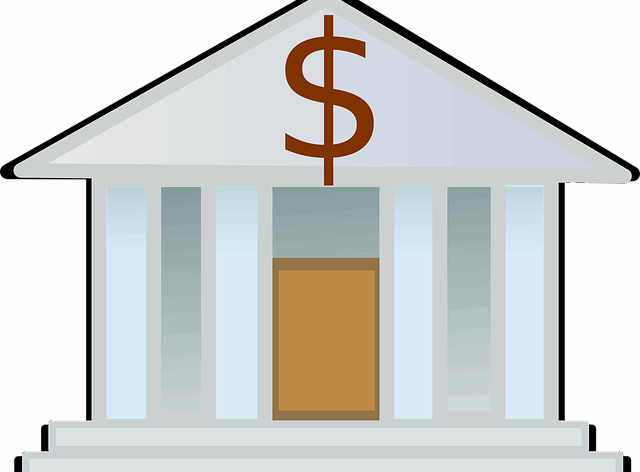Military Credit Unions and Banks

The first thing you may notice when searching for military banks and credit unions online is that many finance-related blogs and websites lump civilian-oriented banks into the lists simply because they have military-friendly banking options. There can be important differences between a military credit union, for example, and a non-military equivalent.
It’s not safe to assume any one financial institution offers identical military banking benefits.
It pays to shop around for the best rates, terms, locations, and other options. Remember, a lender with specific services aimed at the military community may have more for you than a civilian financial institution that counts veterans amongst a much larger customer base. That is not always true, but the differences make some think twice before committing.
Military Banks and Credit Unions
There are several options for military-specific lending, banking, and financial planning services. They include:
- USAA
- PenFed Credit Union
- Soarion Credit Union (Formerly Air Force Federal Credit Union)
- Navy Federal Credit Union
- Andrews Federal Credit Union
- Security Service Federal Credit Union
- Armed Forces Bank
Some of these institutions began as military-only lenders but have since expanded their eligibility categories to include other options.
Related: Veteran Tax Benefits
Navy Federal Credit Union (NFCU)
Type: Military Credit Union
History & Military Focus: Navy Federal Credit Union (NFCU) was founded in 1933 by a group of Navy officers and has grown into the largest credit union in the world with over 14 million members. Navy Federal is a member-owned and not-for-profit credit union that serves the military, veterans, and their families. Because NFCU is a not-for-profit, any extra earnings go right back to members through dividends, lower loan rates, fewer fees, and better services.
Eligibility: Navy Federal is open to more than just active-duty servicemembers. You likely qualify if you’re a veteran or a family member of someone who served. It’s not just limited to service members. DoD civilian employees, contractors on assignment, and retirees from those roles are also eligible.
Key Services & Benefits: Like most credit unions, NFCU offers a wide range of banking services, from checking and savings accounts to credit cards, mortgages, and personal loans. Military pay loans and competitive auto loan rates are also available.
Distinguishing Features: NFCU offers benefits like early direct deposit and free active duty checking for active duty, reserve, and retired military members. They can receive up to $240 back on ATM fees, enjoy no monthly fees or minimum balances, and get free personalized checks.
NFCU also offers SCRA protections for active-duty servicemembers, including a reduced 4 percent interest rate cap—lower than the federally mandated 6%—on eligible pre-service debts. Covered accounts include consumer and business loans, mortgages, credit cards, and student loans.
NFCU also protects servicemembers from foreclosure or repossession without a court order during active duty and offers retroactive interest refunds.
PenFed Credit Union
Type: Military Credit Union
History & Military Focus: PenFed, known formally as Pentagon Federal Credit Union, has been dedicated to serving military members, veterans, and their families since 1935. Today, it’s one of the largest credit unions in the U.S., with nearly 3 million members worldwide.
Eligibility: PenFed membership is open to current or former servicemembers, government employees (like those from the DoD or NOAA), and their families. You can also join if you live or work at an eligible location or are a member of over 50 affiliated associations.
Distinguishing Features: PenFed’s VA loans are backed by the government and come with perks like no down payment, no PMI, and lower interest rates than traditional mortgages. And, with special SCRA benefits, you won’t get hit with unnecessary fees while on active duty. This credit union also runs the PenFed Foundation, a non-profit program dedicated to helping veterans transition from military service to civilian life.
Servicemembers also have access to several member discount programs from partner organizations.
Soarion Credit Union (Formerly Air Force Federal Credit Union)
Type: Military Credit Union
History & Military Focus:: As AFFCU, Soarion Credit Union was originally established to serve Air Force personnel in the 1950s, Soarion Credit Union continues to provide financial services tailored to the needs of military members, veterans, and their families, as well as civilians.
Eligibility: Membership is open to military and civilian personnel regularly employed by the DoD who are assigned to, stationed at, or work at any U.S. government installation, facility, or unit in Texas, Oklahoma, Arkansas, Louisiana, or Mississippi. This includes active duty members as well as their dependents.
Key Services & Benefits: Soarion Credit Union also offers traditional checking accounts, savings accounts, mortgages, loans, and digital banking options. It provides financial education resources to help members make informed decisions. Members can access over 55,000 Allpoint ATMs with no surcharge, get paid up to a day early with direct deposit, and find related military banking benefits.
Distinguishing Features: Soarion offers members free tools like budgeting calculators, financial articles, and webinars to help with everyday money decisions and shares guidance to build financial confidence over time.
USAA Federal Savings Bank
Type: Retail Bank
History & Military Focus: USAA was founded in 1922 when 25 Army officers came together to create a way to get affordable auto insurance. (It was known then as the United States Army Automobile Association.)
Just a couple of years later, they opened membership to other military branches and became the United Services Automobile Association, or USAA. The organization branched out into banking services in 1983, and by 1996, it opened membership to include enlisted service members.
Eligibility: Military members, veterans, and their families are all eligible. Originally, USAA was just for commissioned officers, but now anyone who serves or has served in the military can join. Federal employees from select agencies may also qualify for membership, as can officer and warrant officer candidates, service academy appointees, and cadets or midshipmen under contract.
Key Services & Benefits: When you join USAA, you get access to checking and savings accounts, car loans, mortgages, and insurance. The bank also offers early pay deposit and VA loans, and SCRA protections, including fee waivers and interest rate reductions for servicemembers.
Distinguishing Features: The USAA supports military members with a 4 percent limit on the interest rate of eligible accounts through SCRA or state benefits, along with waived fees. The credit union’s auto loans come with flexible terms of up to 84 months, no hidden fees, and a 0.25 percent rate discount for setting up autopay. Military members can also take their car overseas. Members also get flexible payment options, a simple application process, and 45-day loan approvals.
USAA doesn’t offer business bank accounts, so if you’re a military-connected entrepreneur, you’ll want to explore other options.
Armed Forces Bank
Type: Military Bank
History & Military Focus: Armed Forces Bank was founded back in 1907 as Army National Bank in Fort Leavenworth, Kansas. Today, it serves active-duty service members, veterans, retirees, DoD civilians, and military families across all 50 states and internationally.
About 75 percent of the Armed Forces Bank team has some kind of military affiliation, which helps shape how they understand and support their members.
Eligibility: Armed Forces Bank primarily serves active-duty, retired military, veterans, and their families, but civilian customers are also welcome, both in the U.S. and abroad. VA loan eligibility is limited to those with qualifying military service.
Services & Benefits: As with the other organizations on this list, Armed Forces Bank offers checking and savings accounts, home loans, personal loans, military-focused products (i.e., early direct deposit), SCRA protections, and the ability to access and manage your accounts from anywhere.
Distinguishing Features: Armed Forces Bank understands the unique challenges of military life and offers products that reflect that, like flexible loan terms and no-fee accounts for active-duty members. It also offers a student checking account for members under 23.
Security Service Federal Credit Union (SSFCU)
Type: Military Credit Union
History & Military Focus: Security Service Federal Credit Union started in 1956 with just eight members and $25 in deposits. It was originally created to support the financial needs of the U.S. Air Force Security Service Command and their families. It has expanded to all servicemembers, including those in the military, reserves, and National Guard. It now serves nearly 800,000 members worldwide.
Eligibility: Membership is available to those who live, work, worship, attend school, volunteer, or own a business in Texas, Colorado, or Utah. Additionally, members of select military branches or units, DoD employees at specific military bases within these service areas, and family or household members of existing members are also eligible.
Key Services & Benefits: SSFCU offers military-specific benefits such as a special 6 percent APR on pre-existing loans for active-duty members under the Servicemembers Civil Relief Act (SCRA), military deployment loans, and deployment services to assist with insurance costs or vehicle shipping approvals.
Distinguishing Features: SSFCU also offers a Power Protected Checking account, which includes phone protection and 24/7 telehealth services, and a “Skip-a-Pay” option for eligible loans. Members have access to 30,000 free ATMs and 5,000 shared branching locations around the world.
Andrews Federal Credit Union
Type: Military Credit Union
History & Military Focus: Established in 1948, Andrews Federal Credit Union was initially created to serve military personnel at Joint Base Andrews. Over the years, it has expanded its reach, but its core mission remains to support the financial well-being of military members and their families.
Eligibility: Andrews Federal Credit Union welcomes members based on where they live, work, or their military ties. If you live or work in Washington, D.C., you’re eligible. They also include people who work for certain employers in Maryland, Virginia, and New Jersey.
Military members and their families can join if connected to Joint Base Andrews in Maryland, Joint Base McGuire-Dix-Lakehurst in New Jersey, or certain military installations in Germany, Belgium, and the Netherlands.
If you’re an American Consumer Council (ACC) member, that also qualifies you for membership. Plus, immediate family members or people living in the same household as current Andrews Federal members can join too.
Key Services & Benefits: Andrews Federal offers a suite of military-tailored financial products, including early access to military pay deposits, checking and savings accounts, loans, and other financial products.
Distinguishing Features: Andrews Federal serves military communities domestically and abroad, with branches on military installations in Germany, Belgium, and the Netherlands and stateside locations in Washington, D.C., Maryland, Virginia, and New Jersey.
Joining a Military Bank or Credit Union
Signing up online or in person will require you to provide a government photo ID plus documentation showing your military status as a service member, spouse, or dependent child. Other issues to be aware of:
- Military ID is one form of acceptable photo identification for starting an account, but you will likely also need your driver’s license number and Social Security Number to get started.
- Some may also be required to show proof of enlistment or commission with documents that show the start and dates of the military commitment. This is typically required when a military member wants to buy a home with a VA mortgage and is signing up for a new account as part of that process.
- A participating VA lender, military bank or not, is required to determine how much time in service remains on the current contract and that the military member is in good standing with their unit.
- When signing up for Direct Deposit, you must provide your new bank account and routing numbers. Some may have their initial Basic Pay deposited in a civilian account and open a military bank account later on.
- In such cases, you must apply for a change in your Direct Deposit information and add the new military account number and routing number. This is true UNLESS you do not wish to transfer the Direct Deposit to your military bank account.
Related: Military Allowances Guide
What Military Banks and Credit Unions are Known For
Early deposit of military paychecks is a common perk across many military banks and lenders discussed here. Not all offer this, but many do.
Some banks may offer incentives such as interest-bearing accounts for military members and exclusive-to-the-military credit builder accounts such as secured credit cards. Some may offer special interest rates or other perks to military-affiliated account holders.
Some military lenders may offer auto loans with special provisions to help those deployed or sent on temporary duty; you may be able to negotiate delayed payments or other options when called to active duty or deployed into a combat zone.
When Researching Your Military Bank Options
When searching for these financial institutions, you’ll find a variety of websites reviewing the options. What should you know about some of these financial blogs (especially those that claim to provide you with “curated recommendations” about lenders, including military banks?
They are often written by people with little to no experience living in military communities. Your priorities and theirs (in writing the review) may differ significantly. You’ll want to read the reviews to get a general sense of what may be offered, but for best results, don’t trust these indivual reviews on the finance blogs without comparing options on the lender’s official site.
Some of these financial blogs go a long time between updates and you’ll want to know the must current options and perks, not the ones current when the reviewer looked at them three months ago.
- What’s important to you? A 12-month share certificate? Or interest checking? Those are the priorities for one such website offering reviews of military lenders, but your concerns may be a lot closer to financing a car you purchased at an overseas military assignment, a VA mortgage for a home you wish to purchase stateside, or a checking account that offers protections against identity theft or fraud on your accounts.
- Be sure to search the lender’s official site for the specific features you need from your military bank account. If your priority is investing and saving, a more full-service lender like USAA may be for you.
- If you simply need an account for your military pay Direct Deposit, search for a military lender or credit union that provides the best terms and ATM availability. Be sure to explore your options for using the ATM card and accounts overseas in case you are given a new duty assignment outside the CONUS.
What to Look for From a Military Bank or Credit Union
- Ease of use, where you will likely be stationed stateside or overseas. How many ATMS can you access and where? Is there a fee for using the bank’s ATM outside CONUS? You’ll need to know.
- If you are sent overseas, can you access most lender services online?
- Are there added fees for using your ATM card at non-lender machines?
- Does the lender offer military-specific services such as payment arrangements for deployments or new assignments?
- Ask about lender-specific perks you may qualify for thanks to your military service/.
- No-fee or low-fee checking: Check fees are bad enough for those assigned stateside, but when dealing with the expense of living overseas, the exchange rate, Cost-of-Living adjustments, and other issues, cutting your costs in every conceivable way–including check fees–is a great idea.
Related: Blended Retirement System: An Overview
About the author
Editor-in-Chief Joe Wallace is a 13-year veteran of the United States Air Force and a former reporter/editor for Air Force Television News and the Pentagon Channel. His freelance work includes contract work for Motorola, VALoans.com, and Credit Karma. He is co-founder of Dim Art House in Springfield, Illinois, and spends his non-writing time as an abstract painter, independent publisher, and occasional filmmaker.


